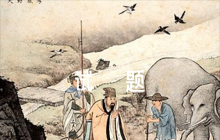【www.chinawenwang.com--试题】
关于Unit 8 Surprise endings测试题的一些相关信息请点击阅读,范文网在线www.01hn.com 小编精心为大家整理了Unit 8 Surprise endings测试题,希望对你有帮助。Unit 8 Surprise endings测试题
重点单词
gift n.礼物 sign n.招牌
graduation n.毕业 present n.礼物
cent n.分 search v.搜寻
afford v.买得起 album n.相册;影集
knee n.膝盖 goods n.「pl.」商品;货物
chain n.链子 step n.脚步声
bill n.账单 draw v.掏出
笔试部分(共85分)
I. 词语释义(15分)
从下面每小题的A、B、C三个选项中选出可以替换划线部分的最佳选项。(共15小题,每小题1分)
( ) 1. Paul always rode the bus although he could afford a car.
A. was able to take
B. was able to drive
C. was able to buy
( ) 2. I counted the money. It was more than five hundred dollars.
A. calculated
B. accounted
C. enjoyed
( ) 3. I kept my promise to my daughter by sending her a gift on her birthday.
A. talent
B. message
C. present
( ) 4. The story of the old couple was very moving.
A. touching
B. leaving
C. interesting
( ) 5. Everyone was seated when the teacher drew the exam papers from her bag.
A. worked out
B. took out
C. picked out
( ) 6. Jenny is watching a magic show, and her eyes are fixed on the hands of the magician.
A. repaired by
B. concentrated on
================================================
Multiple Choice
1. — She sold her treasures to cure her mother’s illness, even though it was her own wishes. (2014湖北)
— It’s so kind _____ her.
A. against; of
B.
above; of
C. on; for D. for; for
2. Gina, what’s this ___________English?(2014 成都)
A.by B.for C.in
3. -- What time do you usually go to school, Jack?
-- ________ about
half past
seven. (2014 重庆)
A. On B. In
C. At D. For
4. The castle stands in a qu
literature一、根据汉语写出英文单词
1. 毕业典礼(n.) _________________
2. 链子(n.) _________________
3. 账单(n.) _________________
4. 妻子(n.) _________________
5. 礼物(n.) _________________
6. 膝盖(n.) _________________
7. 招牌(n.) _________________
8. 计算(或清点)总数(v.) _________________
9. 买得起(v.) _________________
10. 搜寻(v.) _________________
11. 掏出(v.) _________________
12. 控告;控诉(v.) _________________
自主预习
二、根据汉语写出下列词组
1. 寻找;寻求 _____________________
2. 终于;最终 _____________________
3. 集中(目光等)于 _____________________
4. 递出 _____________________
5. 被控告…… _____________________
6. 用……名字;以……假名 _____________________
7. 引以为荣 _____________________
第一节 单项填空(共 15 小题;每小题 1 分,共 15 分)
从每题所给的 ABCD 四个选项中,选出可以填入空白处的最佳选项,并在答题卡上将该项涂黑。
21. —I'm taking my driving test tomorrow.
—_______!
A. Cheers B. Good luck C. Come on D. Congratulations
22. Tom has always thought of himself as a good cook and never fails to ____everyone of it.
A. remember B. know C. introduce D. remind.
25. To keep healthy, Professor Johnson_____ cycling as a regular form of exercise after he retired.
A. made up B. put up C. took up D. carried out
26. On our arrival, we found Tom_____ at the desk and ______ a letter.
A. seated, wrote B. sitting, written
C. seating, writing D. seated, writing
27. I have a lot to say in relation ______ _the affair.
A. with B. by C. to D. in
28. Tom takes a(n) ________ view of passing the test next time although he has failed in the test for three times.
A. happy B. optimistic C. pessimistic D. negative
29. -We had_____ really cold February this year
-I can’t remember ____ spring when it snowed in Changzhou .
A. a; 不填 B. 不填; the C. the; a D. a; a
30. ---Where is Jack?
---Well, he ______ you______ here, or else he would be here right now.
A. doesn’t know, are B. hadn’t known, were
C. didn’t know, were D. hasn’t known, are
31. The girl looked at me with a ____expression. Maybe the problem was quite _________.
A. puzzled; puzzling B. puzzling; puzzled
C. puzzled; puzzled D. puzzling; puzzling
32. She ____________ the path as the trees around her became thicker.
A. lost sight of B. caught sight of C. lost sight D. caught sight
33. ____ more attention, the trees could have grown better.
A. Given B. To give C. Giving D. Having given
34. It’s said that people who lost their houses in that big earthquake have got _________in a new town.
A. developed B. adjusted C. settled D. adapted
35. Judging from her _____ look, my daughter must have won first prize in the competition.
A. exciting B. excited C. interested D. interesting
第二节 完形填空(共 20 小题;每小题 1.5 分,共 30 分)
阅读下面短文,掌握其大意,从每题所给的 A、B、C、D 四个选项中,选出最佳选项,并在答题卡上讲该项涂黑。
What kind of homes will we live in the future? 36 can be sure,but scientists are working _37 new ideas now.
Some scientists are 38 about building whole cities under huge glass domes(圆顶). 39 , advanced heating and cooling systems will be 40 to control the weather in the domes.41 ,there will never be any 42 or snow,and the temperature will always be 43 .
Perhaps everyone will live in vertical(垂直的)cities — high rises 44 are so large that they can45 all the necessities of life.Since vertical cities will use 46 land than flat cities,and provide homes 47 more people,they will be practical for small countries that have 48 population.49 idea that will be helpful to small countries is the 50 city.Monaco has already built homes, stores, and offices 51 the water of the Mediterranean Sea.
There are some people who think that we will go back to 52 in caves. 53 the caves of the future will be very different from the caves of the Stone Age.Farms and parks will be on the land 54 the cave city.When people want to go to the country or to a park,a short ride in a _55 will take them there.
36. A. Somebody B. Anybody C. Nobody D. Everybody
37. A. off B. out C. in D. by
38. A. thinking B. considering C. imagining D. suggesting
39. A. On the other hand B. As a result
C. Of course D. At the same time
40. A. possible B. suitable C. pleasant D. necessary
41. A. Similarly B. Therefore C. According to D. Moreover
42. A. cloud B. rain C. wind D. ice
43. A. cool B. warm C. comfortable D. satisfied
44. A. that B. they C. where D. who
45. A. construct B. continue C. remain D. contain
46. A. wider B. more C. less D. fewer
47. A. on B. to C. with D. for
48. A. a small B. a large C. a few D. many
49. A. One B. Second C. Next D. Another
50. A. floating B. flowing C. shipping D. blowing
51. A. in B. above C. over D. on
52. A. live B. be living C. living D. having lived
53. A. Also B. But C. Then D. Again
54. A. in B. under C. beside D. over
55. A.lift B. underground C. plane D. bus
第三部分:阅读理解(共 20 小题;每小题 2 分,共 40 分)
阅读下列短文:从每题所给的 A、B、C、D 四个选项中,选出最佳选项,将正确的选项涂在答题卡上。
A
O. Henry was a pen name used by an American writer of short stories. His real name was William Sydney Porter. He was born in North Carolina in 1862. As a young boy he lived an exciting life. He did not go to school for very long, but he managed to teach himself everything he needed to know. When he was about 20 years old, O. Henry went to Texas, where he tried different jobs. He first worked on a newspaper, and then had a job in a bank, when some money went missing from the bank O. Henry was believed to have stolen it. Because of that, he was sent to prison. During the three years in prison, he learned to write short stories. After he got out of prison, he went to New York and continued writing. He wrote mostly about New York and the life of the poor there. People liked his stories, because simple as the tales were, they would finish with a sudden change at the end, to the reader’s surprise.
56. In which order did O. Henry do the following things?
a. Lived in New York. b. Worked in a bank. c. Travelled to Texas.
d. Was put in prison. e. Had a newspaper Job. f. Learned to write stories.
A. e. c. f. b. d. a B. c. e. b. d. f. a C. e. b. d. c. a. f. D. c. b. e. d. a f.
57. People enjoyed reading O. Henry’s stories because ________.
A. they had surprise endings B. they were easy to understand
C. they showed his love for the poor D. they were about New York City
58. O. Henry went to prison because ________ .
A. people thought he had stolen money from the newspaper
B. he broke the law by not using his own name
C. he wanted to write stories about prisoners
D. people thought he had taken money that was not his
59. What do we know about O. Henry before he began writing?
A. He was well-educated. B. He was not serious about his work.
C. He was devoted to the poor. D. He was very good at learning.
60. Where did O. Henry get most material for his short stories?
A. His life inside the prison. B. The newspaper articles he wrote.
C. The city and people of New York. D. His exciting early life as a boy.
B
One day a few years ago a very funny thing happened to a neighbour of mine. He is a teacher at one of London’s big medical schools, He had finished his teaching for the summer term and was at the airport on his way to Russia to give a lecture.
He had put a few clothes and his lecture notes in his shoulder bag, but he had put Rupert, the skeleton (人体骨骼) to be used in his lecture, in a large brown suitcase (箱子). At the airport desk, he suddenly thought that he had forgotten to buy a newspaper. He left his suitcase near the desk and went over to the shop.
When he got back he discovered that someone had taken his suitcase by mistake. He often wonders what they said when they got home and found Rupert.
61. Who wrote the story?
A. Rupert’s teacher. B. The neighbour’s teacher.
C. A medical school teacher. D. The teacher’s neighbour.
62. Why did the teacher put a skeleton in his suitcase?
A. He needed it for the summer term in London.
B. He needed it for the lecture he was going to give.
C. He wanted to take it to Russia for medical research.
D. He wanted to take it home as he had finished his teaching.
63. What happened at the airport?
A. The skeleton went missing. B. The skeleton was stolen .
C. The teacher forgot his suitcase. D. The teacher took the wrong suitcase .
C
On the evening of June 21, 1992, a tall man with brown hair and blue eyes entered the beautiful hall of the Bell Tower Hotel in Xi’an with his bicycle. The hotel workers received him and telephoned the manager, for they had never seen a bicycle in the hotel ball before though they lived in “the kingdom of bicycles.”
Robert Friedlander, an American, arrived in Xi’an on his bicycle trip across Asia which started last December in New Delhi, India.
When he was 11, he read the book Marco Polo and made up his mind to visit the Silk Road. Now, after 44 years , he was on the Silk Road in Xi’an and his early dreams were coming true.
Robert Friedlander’s next destinations (目的地) were Lanzhou, Dunhuang, Urumqi, etc. He will complete his trip in Pakistan.
66. The best headline(标题) for this newspaper article would be .
A. The Kingdom of Bicycles B. A Beautiful Hotel in Xi’an
C. Marco Polo and the Silk Road D. An American Achieving His Aims
67. The hotel workers told the manager about Friedlander coming to the hotel because
A. he asked to see the manager
B. he entered the hall with a bike
C. the manager had to know about all foreign guests
D. the manager knew about his trip and was expecting him
68. Friedlander is visiting the three countries in the following order, .
A. China, India, and Pakistan B. India, China, and Pakistan
C. Pakistan, China, and India D. China, Pakistan, and India
69. What made Friedlander want to come to China?
A. The stories about Marco Polo . B. The famous sights in Xi’an .
C. His interest in Chinese silk. D. His childhood dreams about bicycles .
70. Friedlander can be said to be .
A. clever B. friendly C. hardworking D. strong—minded
D
Can trees talk? Yes, but not in words. Scientists have reason to believe that trees do communicate (交际) with each other. Not long ago, researchers learned some surprising things. First a willow tree attacked in the woods by caterpillars (毛虫) changed the chemistry of its leaves and made them taste so terrible that they got tired of the leaves and stopped eating them. Then even more astonishing, the tree sent out a special smell---a signal (信号) causing its neighbors to change the chemistry of their own leaves and make them less tasty.
Communication, of course, doesn’t need to be in words. We can talk to each other by smiling, raising our shoulders and moving our hands. We know that birds and animals use a whole vocabulary of songs, sounds, and movements. Bees dance their signals, flying in certain patterns that tell other bees where to find nectar (花蜜) for honey. So why shouldn’t trees have ways of sending message?
71. It can be concluded from the passage that caterpillars do not feed on leaves that ______.
A. are lying on the ground B. have an unpleasant taste
C. bees don’t like D. have an unfamiliar shape
72. The willow tree described in the passage protected itself by ______.
A. growing more branches B. communicating with birds and bees
C. changing its leaf chemistry D. shaking caterpillars off
73. According to the passage, the willow tree was able to communicate with other trees by _________.
A. waving its branches B. giving off a special smell
C. dropping its leaves D. changing the colour of its trunk
第四部分:书面表达(共两节,35 分)
(15分)
目前越来越多的中学生使用电子词典。某中学生英文杂志开展有关电子词典的讨论,请你参考下面提供的材料,向杂志社投稿,说明电子词典的特点并谈谈你对电子词典的看法。
注意:文章的标题和开头已给出。写作时请将所给文章的标题和开头一并抄写在答题卡上。
E-dictionary
a little expensive
small, easy to carry
convenient to use
offer exact pronunciation发音
E-dictionary
More and more students are using e-dictionaries. _______________________________
____________________________________________________________________________________________________________________________________________________
第二节 英译汉(共10小题;每小题2分,满分20分)
put forward ________________________
apart from ________________________
consist of ________________________
divide …into ________________________
break away from ________________________
take the place of ________________________
lose sight of ________________________
depend on ________________________
speed up ________________________
concentrate on ________________________
本文来源:https://www.chinawenwang.com/shiti/15036.html
文档为doc格式






 2022-11-08
2022-11-08 








